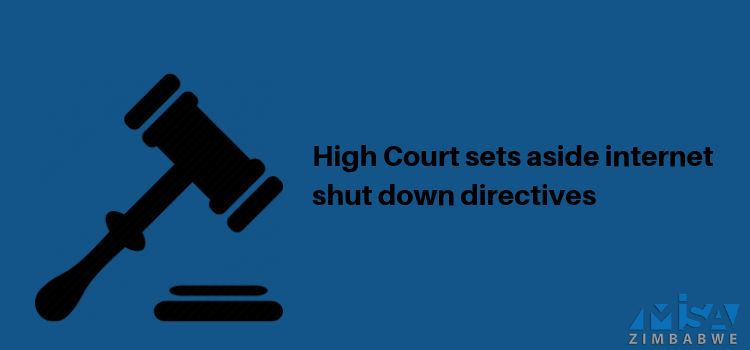High Court judge Justice Owen Tagu on 21 January 2019 ruled that the Minister of State in the President’s Office Responsible for National Security does not have the authority to issue any directives in terms of the Interception of Communications Act.
This means that the directives issued by Minister Owen Ncube to shut down the Internet in Zimbabwe are illegal and therefore, without effect.
The Interception of Communications Act is one of 12 Acts directly administered by the President of the Republic of Zimbabwe. The President does have the right to assign any other Cabinet members to act on his behalf to administer any of these 12 Acts.
This is in terms of Statutory Instrument 212 of 2018 as read with section 104(1) of the Constitution of Zimbabwe.
Advocate Eric Matinenga pointed this out as a preliminary point when he appeared on behalf of the Zimbabwe Lawyers for Human Rights and MISA Zimbabwe in their application challenging the use of the Interception of Communications Act (ICA).
Justice Tagu agreed with Advocate Matinenga’s submission that the Minister was not assigned with any authority to issue such directives by the President. He ruled that the directives issued in the minister’s name be set aside as they are unlawful.
The judge restricted his decision to the preliminary point raised by Advocate Matinenga. This means the court did not consider the other legal arguments contained in the joint court application.
The court did not consider whether the government has the right to completely shut down the Internet. And, if so, whether the Interception of Communications Act is the proper law to effect internet shutdowns or any other disruptions of communications.
The decision, therefore, means that mobile network operators and Internet service providers should restore full Internet access including access to social media applications and websites. Access to Applications such as WhatsApp and Facebook had been restricted since the morning of Tuesday 15 January 2019.
MISA Zimbabwe Communique
//Ends









